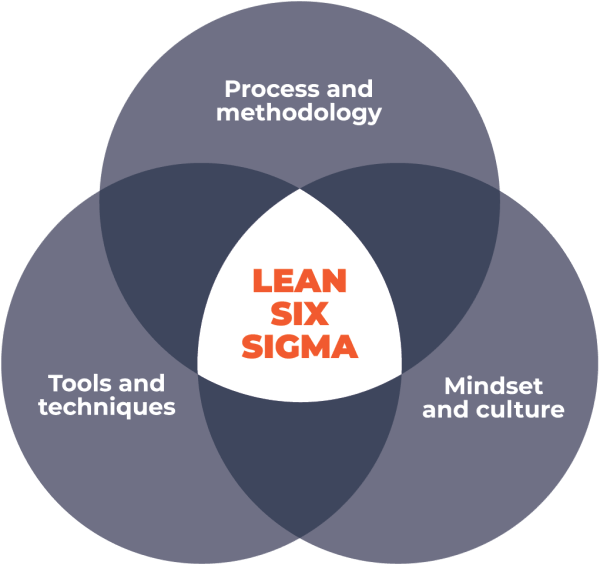Introduction to Lean Six Sigma: What and Why?

What is Lean Six Sigma?
Lean and Six Sigma, two methodologies evolved separately, share the same ultimate goal: answer voices of customers by achieving process excellence1. While Lean is famous for its continuous pursuit of perfection and means to drive out waste and promote work standardization and flow, Six Sigma provides a structured methodology through tools used to improve business processes and achieve world-class operational capability. Integrating the two methodologies synergizes the improvement efforts for enhanced results.
Lean Six Sigma combines the tools, methods, and principles of Lean and Six Sigma into one popular and powerful methodology for improving your organization’s operations. Lean Six Sigma’s team-oriented approach has proven results in maximizing efficiency and dramatically improving profitability for businesses around the world.
Why is Lean Six Sigma Important?
Organizational Benefits of Lean Six Sigma:
- Simplify business processes: Identify areas of waste and inefficiency to make processes simpler and often much easier to manage and control. This results in a faster process, which leads to better customer service and higher customer satisfaction, as well as reducing overhead costs and therefore increasing profits.
- Make fewer errors and mistakes: Prioritize continuous improvement efforts to address the problems that have the most impact on business success. This results in improvements that fix real problems and bring them to a level that is acceptable to the real customers, addressing the errors and mistakes that matter the most.
- Develop predictable performance: Create simple processes with less variation that are easier to control and manage and are therefore more predictable. Predictable cycle time, predictable quality output, and predictable costs can lead to better customer service, fewer complaints, and higher profits. This predictability becomes a tremendous advantage for an organization when operating in an environment of fast-moving changes.
Personal Benefits of Lean Six Sigma:
- Improve personal effectiveness: Being able to find and fix problems improves your ability to perform in any position and industry. The Lean Six Sigma methodology steers you through an organized process of inquiry, analysis, problem identification and solution creation. Many of the tools and techniques can be applied to everyday problems and issues and will put you in control of finding and fixing your problems.
- Increase leadership opportunity: Leading a Lean Six Sigma project provides an opportunity for exposure to other functions and senior management. Interacting with team members and managers will likely improve your communication and decision-making skills and help to develop your project management skills.
- Improve pay and promotability: Attaining belt certification is a very valuable credential on your resume. A Lean Six Sigma credential will open the door for many opportunities and promotions. In addition, effectively leading a Lean Six Sigma project shows senior management and HR that you are ready for greater responsibility in your position or company. According to Glassdoor, the average annual salary in the United States for Lean Six Sigma Black Belts is just under $100,0002. It is safe to say that Lean Six Sigma training and certifications will enhance your earning potential.
Start Your Journey With UTSA
Yellow Belt
Green Belt
Black Belt
Author

Professional and Continuing Education Staff
As a continuing education incubator, Professional and Continuing Education (PaCE) delivers skills-focused, innovative programming that satisfies the fluid learning demands of life-long learners. The values of Innovation, Accessibility and Excellence are realized through a dedicated team of specialists with a combined 30 years of continuing education experience.